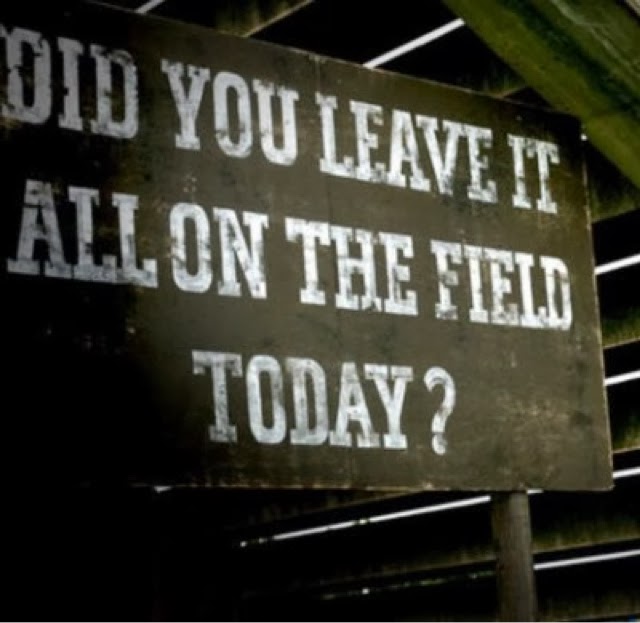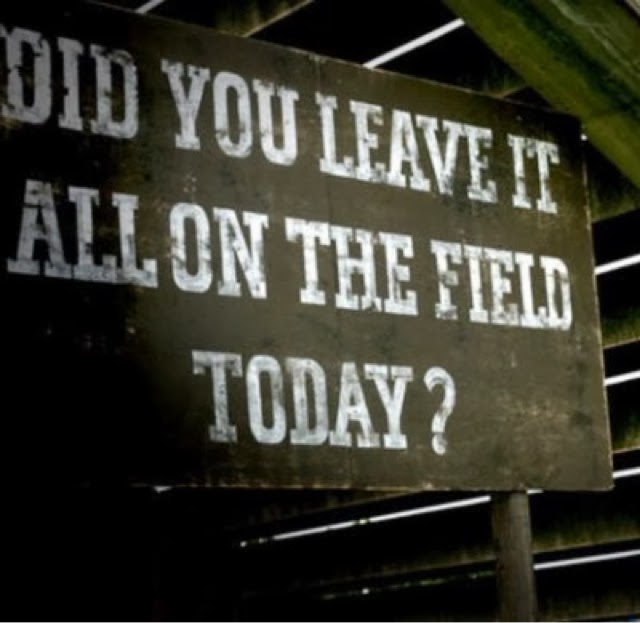Are people doing the best they can?
In her research, Brene Brown posed this question to many people and learned a lot from the results. You can read about it in Rising Strong, her amazing new book.
So, do YOU believe that people are doing the best they can?
This is such a huge question. Your answer to it makes the biggest difference in the world. It is the position from which you respond to others and their shortcomings and failures. And people fail and fall short all of the time. Many of the inconveniences and road blocks we experience crop up because of choices others have made. The guy in front of you is going 10 miles below the speed limit which causes you to hit every red light. The coworker who didn’t get their part of the report to you on time. The spouse who forgot it was their turn to get the kids from daycare.
If you are a naturally empathetic person, and/or have been raised in an unusually nurturing environment filled with patient adults, you might quickly respond that, yes, you believe people are generally trying their best. You might even recognize that this comes across as a little naive to others, but you just can’t shake the belief that people are pretty much doing the best they can. Your response to failure in others is empathetic and you assume that this person tried their hardest and is probably more disappointed in themselves than you could ever be.
If you are like me, your natural tendency is to believe that when failure happens, well, people just aren’t trying hard enough. You can see the places where they could have made a better choice and changed the trajectory of their failure. You can see how if they would have just hurried a little, or stopped and waited or turned at this point or said something different, everything would have been fine. You assume they have the ability to complete whatever the task was, but they chose not to focus, allowed distraction to get in their way, or just decided at some point, they didn’t care. For me, failure is an invitation to blame. And I’m an expert blamer. I can tolerate failure as long as I know whose fault it was, and that they are really, really sorry and understand that it cannot happen again. Even if I’m the culprit. I’m way more comfortable with it being my fault than it being no one’s fault. And I’m just as harsh with myself when it comes to my own failings.
Now, this characteristic of insisting that someone take responsibility, self included, makes me a good leader. Until it doesn’t. Sometimes it makes me a terrible leader. Because it ventures into me acting like an unfeeling, cold, control freak. While I’ve spent years making attempts at simply controlling my behavior by using different words and tones of voice or taking five minutes before I respond to another’s failure, changing behavior only gets you so far. The changing of the thinking is what causes transformation.
And here’s what changed my thinking. When I flip the script, and put myself in the seat of the failing person, and someone besides myself in the judgment seat, and I experience their judgment of my failure, I feel utterly awful. I’m already crushed by the weight of my own judgment. I’m already embarrassed and angry at myself. I probably was trying pretty hard in the first place. In fact, most of the time, I’m so deathly afraid of failing, I’d risk life and limb (mine or yours) to get me across whatever finish line I’ve set my sights on. Imagine me, doing my very best, but crossing that line just a second too late. Imagine the crushing disappointment, I’ve let myself down. I’ve failed. And then I look up, and who do I see, but someone pointing a judgmental finger at me, shaking their head in disappointment and disapproval. But, but, but…I tried my best. Can’t you see that? Now, not only do I feel disappointed in myself. I also feel shame.
So, let’s back up. When I’m the judge, judging the failure and believing the person just isn’t trying hard enough, where is that coming from? I notice, when I get curious about my thoughts and emotions in these circumstances, that my strongest feelings come when another’s failure impacts me. I am slowed down. I am inconvenienced. I am held back. I have to do additional work. I have to clean up the mess. For me, it’s not so much about feeling superior or wanting to believe I’m better. It’s about blame. If I watch someone make a careless mistake while driving, and bump into another car, I might feel empathy. Ooh, that sucks, dude. Bummer. But if it’s MY car they hit…well, let’s rev up that blame engine because I can find 37 things that person did wrong in .25 seconds.
For me, it’s about how the mistake impacts me. The cost I have to pay because of your carelessness, thoughtlessness, laziness, etc. This brings us into the land of choices, and specifically, the land of choices that include things like grace and mercy. Oh, how I crave grace and mercy for myself. But I’m so stingy when it comes to others. Only if I can see it on your face, see the contrition, see the regret. Then, I’m pretty generous with my grace and mercy. But when you think you deserve it without even feeling especially bad, or, worse yet, you don’t recognize you need it, man does my blood boil.
I realize, as I think on this, that it’s about cost. You failed. It impacts me negatively – so there is already a cost in my having to clean up the mess or incur a financial or time burden, but on top of that, there is a cost to the emotional toll it has on me – I feel angry or hurt. Now I need a place to put that emotion, and the easiest, most convenient place is to point it right at you. Blame leads me to discharge the pain I’m experiencing. But grace leads me to keep it, and take the responsibility of transforming it inside myself instead of discharging it at you.
The idea that people are trying to do the best they can makes choosing the grace path a little easier. That ball of anger that formed when you hit my car is so fiery and sharp. But when I think about the possibilities of what you had on your mind, what might have distracted you, how you must feel about yourself right now, the flame loses it’s oomph. When I consider how you also have a cost now, how you might be late for something important, and how a relationship might hinge upon your arrival. How you made a few other mistakes today and this one is just crushing you. Now, my heart is softer. I can see past the indignant expression on your face and recognize that it’s not true self righteousness, that, if left undisturbed, would fuel that anger flame in me. Rather, it’s a mask to hide the shame. And the flame quiets and shrinks.
I’m choosing to believe, not necessarily that everyone is always doing the best they can, but that in fact, they MIGHT be. For now, that’s the best I can do. But it’s a start.


